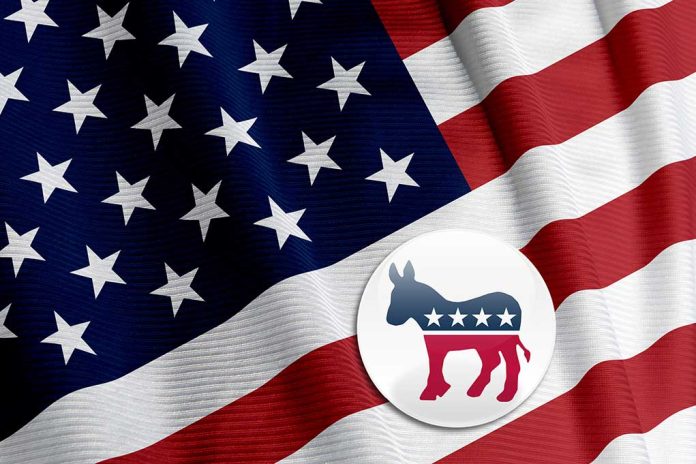
Senator Joe Manchin, a former Democrat turned Independent, labels the Democratic Party as “toxic” and advocates for a centrist “American party” as he prepares to leave the Senate after 15 years of service.
At a Glance
- Manchin criticizes the Democratic Party as “toxic” and out of touch with voters
- He blames progressives for shifting focus from economic to social issues
- Manchin advocates for a centrist “American party” as an alternative to the current political duopoly
- The senator will not seek re-election in 2024 after serving 15 years in the Senate
Manchin’s Critique of the Democratic Party
Senator Joe Manchin, long known for his moderate stance and crucial swing vote in the Senate, has unleashed a scathing critique of the Democratic Party. The West Virginia senator, who recently registered as an Independent, has described the party he once called home as “toxic” and severely out of sync with the American electorate.
“The D-brand has been so maligned from the standpoint of, it’s just, it’s toxic,” Manchin said.
Manchin’s criticism primarily targets progressive lawmakers whom he believes have steered the party away from crucial economic issues towards social matters such as transgender and LGBTQ+ rights. This shift, according to Manchin, has alienated a significant portion of the American populace.
“I am not a Democrat in the form of what the Democratic Party has turned itself into the national brand — absolutely not,” stated Manchin.
The Call for a Centrist Approach
While Manchin’s critique of the Democratic Party is sharp, he doesn’t spare Republicans either. He characterizes the GOP as “too extreme” and lacking common sense, particularly on gun issues. This two-way criticism underscores Manchin’s longstanding reputation as a centrist who has consistently worked on bipartisan issues in the Senate.
In light of his dissatisfaction with both major parties, Manchin is advocating for an alternative. He envisions a centrist “American party” that could potentially bridge the divide created by the current political duopoly. This proposal emphasizes Manchin’s belief in the importance of the centrist-moderate vote, which he sees as crucial for effective governance.
Manchin’s Political Journey
Joe Manchin’s political career spans decades, including roles as a state delegate, state senator, Secretary of State, and governor of West Virginia before his 14-year tenure in the U.S. Senate. His decision to not seek re-election in 2024 marks the end of an era for West Virginia politics.
Manchin’s departure from the Democratic Party reflects a broader shift in West Virginia’s political landscape. Once a reliably blue state, West Virginia has increasingly leaned Republican in recent years with Donald Trump winning the state by over forty points. Manchin urges the Democratic Party to reflect on why individuals like him have left, pointing to the state’s political transformation as evidence of the party’s disconnect with certain voter demographics.
Looking Ahead
As Manchin prepares to leave the Senate, he expresses both gratitude for his service and a readiness to move on. He sympathizes with the challenges faced by the House of Representatives and indicates that he won’t miss the current political climate in Washington.
As he exits the political stage, Manchin’s critique of the Democratic Party and his call for a more centrist approach in American politics leaves a lasting impression on the national political discourse.






















